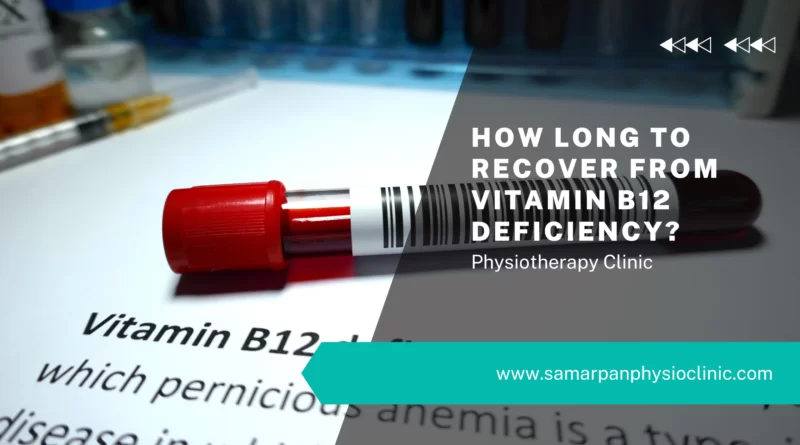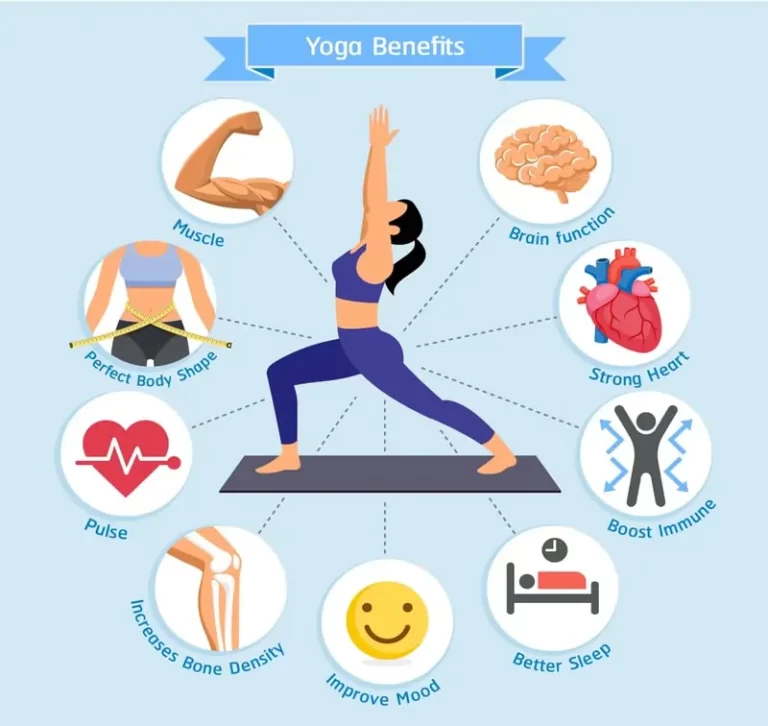How long to recover from Vitamin B12 deficiency?
Vitamin B12 deficiency can lead to a range of health problems, including anemia, nerve damage, and neurological disorders.
Vitamin B12, also known as cobalamin. It is a water-soluble vitamin that plays a crucial role in the proper functioning of the nervous system and the production of red blood cells. It is essential for the metabolism of proteins, fats, and carbohydrates, and is involved in the synthesis of DNA.
Vitamin B12 is naturally found in animal-based foods such as meat, fish, dairy products, and eggs. However, it can also be obtained through supplements or fortified foods for those who follow a plant-based or vegan diet.
Symptoms of deficiency may include fatigue, weakness, tingling in the extremities, difficulty walking, and memory loss.
Vitamin B12 is an important nutrient for overall health and well-being. It is important to ensure adequate intake through diet or supplementation.
Table of Contents
Why Is Vitamin B12 Important To Your Health?
Vitamin B12 is important to your health for a number of reasons. First and foremost, it plays a crucial role in the production of red blood cells, which carry oxygen throughout the body. Without adequate vitamin B12, the body cannot produce enough healthy red blood cells. That leads to anemia, a condition characterized by fatigue, weakness, and shortness of breath.
For the proper functioning of the nervous system, Vitamin B12 plays an essential role. It helps to maintain the myelin sheath, a protective covering that surrounds nerve fibers. And it also facilitates the transmission of nerve impulses. Without enough vitamin B12, the myelin sheath can break down. That leads to nerve damage and neurological symptoms such as tingling, numbness, and difficulty walking.
In addition, vitamin B12 is involved in the metabolism of proteins, fats, and carbohydrates. Vitamin B12 also helps the body to convert food into energy. It also plays a role in the synthesis of DNA, the genetic material that makes up our cells. Without adequate vitamin B12, the body cannot produce enough healthy DNA. That can lead to cell damage and an increased risk of cancer.
Vitamin B12 is found naturally in animal-based foods such as meat, fish, dairy products, and eggs. However, it can also be obtained through supplements or fortified foods for those who follow a plant-based or vegan diet. It is recommended that adults consume at least 2.4 micrograms of vitamin B12 per day. Although higher doses may be necessary for those with a deficiency or certain medical conditions.
Causes of Vitamin B12 deficiency
Vitamin B12 deficiency can occur for a number of reasons, including inadequate dietary intake, malabsorption, and certain medical conditions. Some of the common causes of vitamin B12 deficiency are:
Inadequate dietary intake: Vitamin B12 is found primarily in animal-based foods, so individuals who follow a strict vegan or vegetarian diet may not consume enough of this vitamin. Infants who are exclusively breastfed by vegan mothers are also at risk of deficiency.
Malabsorption: Some medical conditions, such as pernicious anemia, celiac disease, and Crohn’s disease, can affect the body’s ability to absorb vitamin B12 from food. Individuals who have undergone gastric bypass surgery or have certain gastrointestinal disorders may also be at risk of malabsorption.
Aging: As we age, our bodies might become less efficient to absorb vitamin B12. This can lead to a deficiency, especially in older adults.
Medications: Certain medications, such as proton pump inhibitors and metformin, can interfere with the absorption of vitamin B12.
Alcoholism: Chronic alcohol abuse can damage the lining of the stomach and affect the body’s ability to absorb vitamin B12.
Genetics: Some individuals may have a genetic predisposition to vitamin B12 deficiency, such as those with an inherited disorder called transcobalamin deficiency.
Symptoms
Vitamin B12 deficiency can cause a range of symptoms, many of which are related to the nervous system and the production of red blood cells. The few most common symptoms of vitamin B12 deficiency are:
Fatigue and weakness: Vitamin B12 plays a key role in the production of red blood cells, which carry oxygen throughout the body. Without enough vitamin B12, the body cannot produce enough healthy red blood cells, leading to anemia and feelings of fatigue, and muscle weakness.
Numbness and tingling: Vitamin B12 is important for the proper functioning of the nervous system. Without enough vitamin B12, the myelin sheath, which surrounds and protects nerve fibers, can break down, leading to symptoms such as numbness, tingling, and difficulty walking.
Memory problems: Vitamin B12 is involved in the synthesis of DNA, the genetic material that makes up our cells. Without enough vitamin B12, the body cannot produce enough healthy DNA, which can lead to cell damage and an increased risk of neurological problems such as memory loss and confusion.
Difficulty walking: Nerve damage caused by vitamin B12 deficiency can affect the muscles and coordination, leading to difficulty walking and other mobility problems.
Mood changes: Low levels of vitamin B12 have been linked to depression, anxiety, and other likewise mood disorders.
Glossitis: A swollen, red tongue is a common symptom of vitamin B12 deficiency.
It is important to note that these symptoms can also be caused by other medical conditions, so it is important to seek medical attention if you are experiencing any of these symptoms. Blood tests can determine if you have a vitamin B12 deficiency, and treatment typically involves supplementation with vitamin B12 injections or oral supplements.
Treatment
Vitamin B12 deficiency can be treated with dietary changes, oral supplements, or injections. Treatment options depend on the severity and cause of the deficiency.
Dietary changes: Increasing the intake of foods rich in vitamin B12 can help address mild deficiencies. Animal-based foods such as eggs, meat, fish, poultry, and dairy products can be said best sources of vitamin B12. Vegetarians and vegans may need to take a vitamin B12 supplement or consume fortified foods to ensure adequate intake.
Oral supplements: For more severe deficiencies, oral supplements of vitamin B12 are recommended. These supplements are available in both oral and sublingual forms. Oral supplements typically contain high doses of vitamin B12, which can be absorbed by the digestive system even in cases of malabsorption.
Injections: In cases of severe deficiency or malabsorption, injections of vitamin B12 may be necessary. Intramuscular injections are typically given weekly or monthly for several months to restore vitamin B12 levels.
Address underlying medical conditions: If vitamin B12 deficiency is caused by an underlying medical condition, such as pernicious anemia or Crohn’s disease, treatment of the underlying condition may be necessary to restore vitamin B12 levels.
Individuals with vitamin B12 deficiency should be monitored by a healthcare provider to ensure that their levels are being adequately restored. In some cases, ongoing supplementation or injections may be necessary to maintain normal levels of vitamin B12.
How long to recover from Vitamin B12 deficiency?
Recovery time for vitamin B12 deficiency varies based on the severity of the deficiency and the treatment used. Mild deficiencies caused by dietary intake can improve within a few weeks. That increases vitamin B12-rich foods or taking an oral supplement.
However, severe deficiencies or those caused by malabsorption may require injections of vitamin B12. That might take several months for symptoms to resolve. Recovery from vitamin B12 deficiency does not necessarily mean the underlying cause has been addressed, and individuals with malabsorption issues or medical conditions may require ongoing treatment.
It is important to work with a healthcare provider to develop a treatment plan and monitor vitamin B12 levels to ensure adequate recovery.
FAQs
It may take up to six to twelve months after starting treatment for your vitamin B12 deficiency before you feel completely better. Additionally typical is the inability to see any improvement in the initial stages of therapy.
Your vitamin B12 levels and symptoms (such acute fatigue or a lack of energy) may not start to get better for a few weeks. The cyanocobalamin tablets may begin to act within a few days if you are receiving hydroxocobalamin injections to increase your vitamin B12 levels at the beginning of treatment.
Having a long-term vitamin B12 deficit can harm your nerves. If you do not begin treatment within six months of the onset of your symptoms, this could become permanent. Anaemia caused by a vitamin B12 deficiency typically responds well to treatment. When the underlying source of the insufficiency is remedied, it will probably get better.
You may receive treatments for as long as it takes for your vitamin B12 levels to normalize, or you may require ongoing care. Tablets containing folic acid are used to raise folate levels. Usually, they need to be taken for four months. Sometimes, changing your diet might help treat the disease and stop it from recurring.
Eat more animal items like meat, fish, dairy, and eggs if you want to increase your intake of vitamin B12. Another fantastic approach to acquire additional B12 is through fortified breakfast cereals. Your doctor could advise you to adjust your diet in addition to taking a vitamin B12 supplement.







